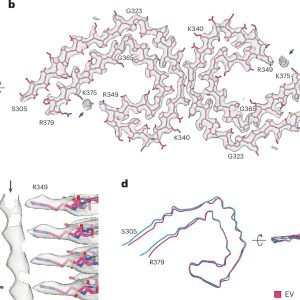
Many women who receive chemotherapy experience a decreased ability to remember, concentrate, and/or think—commonly referred to as “chemo-brain” or “brain fog”—both short- and long-term.
In a clinical trial of women initiating chemotherapy for breast cancer, those who simultaneously started an aerobic exercise program self-reported greater improvements in cognitive function and quality of life compared with those receiving standard care.
The findings are published online in the journal Cancer.
The study, called the Aerobic exercise and CogniTIVe functioning in women with breAsT cancEr (ACTIVATE) trial, included 57 Canadian women in Ottawa and Vancouver who were diagnosed with stage I–III breast cancer and beginning chemotherapy. All women participated in 12–24 weeks of aerobic exercise: 28 started this exercise when initiating chemotherapy and 29 started after chemotherapy completion.
Cognitive function assessments were conducted before chemotherapy initiation and after chemotherapy completion (therefore, before the latter group started the exercise program).
Women who participated in the aerobic exercise program during chemotherapy self-reported better cognitive functioning and felt their mental abilities improved compared with those who received standard care without exercise. Neuropsychological testing—a performance-based method used to measure a range of mental functions—revealed similar cognitive performance in the two groups after chemotherapy completion, however.
“Our findings strengthen the case for making exercise assessment, recommendation, and referral a routine part of cancer care; this may help empower women living with and beyond cancer to actively manage both their physical and mental health during and after treatment,” said lead author Jennifer Brunet, Ph.D., of the University of Ottawa.
Dr. Brunet noted that many women undergoing chemotherapy for breast cancer remain insufficiently active, and there are limited exercise programs tailored to their needs.
“To address this, we advocate for collaboration across various sectors—academic, health care, fitness, and community—to develop exercise programs specifically designed for women with breast cancer,” she said.
“These programs should be easy to adopt and implement widely, helping to make the benefits of exercise more accessible to all women facing the challenges of cancer treatment and recovery.”
More information:
Aerobic exercise and Cognitive functioning in women with breast cancer (ACTIVATE): a randomized controlled trial, Cancer (2024). DOI: 10.1002/cncr.35540
Citation:
Clinical trial suggests aerobic exercise helps prevent brain fog caused by chemotherapy (2024, October 21)
retrieved 21 October 2024
from https://medicalxpress.com/news/2024-10-clinical-trial-aerobic-brain-fog.html
This document is subject to copyright. Apart from any fair dealing for the purpose of private study or research, no
part may be reproduced without the written permission. The content is provided for information purposes only.







